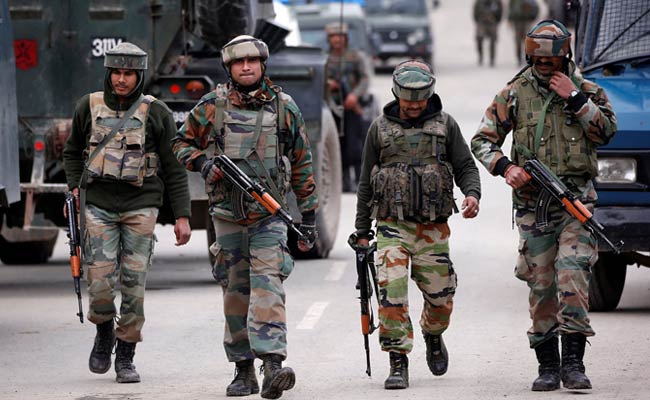How ‘Precision Planning’ Defined India’s Operation Sindoor

On April 24, 2025, in the wake of the horrific Pahalgam terror attack that claimed 26 lives, including 25 Indian citizens and one Nepali national, Prime Minister Narendra Modi made a solemn vow in Bihar’s Madhubani: “India will identify, track, and punish every terrorist and their backers. We will pursue them to the ends of the earth.”
Less than two weeks later, on May 7, 2025, India delivered on this promise with “Operation Sindoor”, a meticulously planned military operation targeting terrorist infrastructure in Pakistan and Pakistan-occupied Jammu and Kashmir (PoK). This operation not only showcased India’s resolve to combat terrorism but also demonstrated its strategic foresight in anticipating and preparing for Pakistan’s response. By coupling military precision with diplomatic and economic measures, including the suspension of the Indus Waters Treaty, India has positioned itself to inflict maximum damage on Pakistan’s terror ecosystem and its broader strategic interests.
Fulfilling The Promise
The Pahalgam attack, executed on April 22, 2025, was a brutal assault on India’s sovereignty, targeting innocent tourists in the popular resort town. The attack, attributed to an offshoot of Pakistan-based terror group, Lashkar-e-Taiba (LeT), was a direct challenge to India’s narrative of stability and peace in Jammu and Kashmir. PM Modi’s response was unequivocal, and Operation Sindoor was the manifestation of his commitment to justice.
Launched in the pre-dawn hours of May 7, 2025, Operation Sindoor involved precision missile strikes on nine terror camps-four in Pakistan and five in PoK-targeting the operational hubs of LeT, JeM, and Hizbul Mujahideen. The operation was described by the Indian Ministry of Defence as “focused, measured, and non-escalatory,” with no Pakistani military facilities targeted to avoid broader conflict escalation. The strikes utilised advanced weaponry, including BrahMos missiles and loitering munitions, reflecting India’s technological prowess and strategic restraint.
The operation’s precision planning was evident in its targeting of key terror infrastructure linked to two of India’s most wanted terrorists: Hafiz Saeed, the mastermind of LeT and the 2008 Mumbai attacks, and Masood Azhar, the founder of JeM, responsible for numerous attacks, including the 1999 IC-814 hijacking and the 2019 Pulwama bombing. Muridke, 30 km from Lahore, has been LeT’s headquarters since 1990, while Bahawalpur in Pakistan’s Punjab province serves as JeM’s operational base. Reports indicate that a madrasa linked to Azhar in Bahawalpur was among the targets, suffering significant damage.
The operation was the culmination of weeks of intelligence-gathering and coordination among India’s armed forces, overseen by PM Modi himself. High-level meetings involving Defence Minister Rajnath Singh, National Security Advisor Ajit Doval, Chief of Defence Staff General Anil Chauhan, and the three service chiefs ensured meticulous planning. The Indian Air Force, Army, and Navy worked in tandem, leveraging credible intelligence and technical inputs confirming Pakistan-based terrorists’ involvement in the Pahalgam attack. PM Modi’s hands-on approach was evident as he monitored the operation throughout the night, ensuring all nine targets were successfully neutralised.
Strategic Foresight
Pakistan’s response to Operation Sindoor was on predictable lines. Immediately after the strikes, Pakistan violated the ceasefire along the Line of Control (LoC), engaging in indiscriminate firing that killed three civilians. Pakistani Prime Minister Shehbaz Sharif called the strikes an “act of war”, signalling a potential escalation.
India, however, had anticipated such a response and factored it into its strategy. The government’s decision to grant the armed forces “complete operational freedom” to decide the mode, targets, and timing of the response ensured flexibility to counter any Pakistani aggression. The Indian Air Force is conducting a two-day mega military exercise along the border, involving frontline fighter jets like Rafale, Su-30, and Jaguar, signalling readiness for any escalation.
Beyond Military Strikes
India’s strategy extends beyond the battlefield, leveraging diplomatic and economic measures to maximise pressure on Pakistan. The suspension of the Indus Waters Treaty, announced shortly after the Pahalgam attack, is a masterstroke in this regard. The treaty, signed in 1960, allocates 80% of the Indus Basin’s water to Pakistan, making it critical to its agriculture and economy. By suspending the treaty, India has signalled its intent to use water as a strategic tool, a move Pakistan has called an “act of war”. India’s long-standing desire to renegotiate the treaty, coupled with its post-attack resolve, gives it leverage to disrupt Pakistan’s water security.
Additional measures include shutting the Attari border crossing, revoking visas for Pakistani nationals, banning Pakistani ships from Indian ports, suspending postal services, and imposing a digital blackout on Pakistani media channels. India has also reduced diplomatic ties, expelling Pakistani military advisors and downsizing high commission staff from 55 to 30 by May 1. These steps aim to isolate Pakistan diplomatically, economically, and culturally, amplifying the impact of Operation Sindoor.
A New Paradigm in India’s Anti-Terror Strategy
With Operation Sindoor, PM Narendra Modi has fulfilled his promise to pursue the perpetrators of the Pahalgam attack to the ends of the earth. The operation’s precision targeting of terror hubs linked to Hafiz Saeed and Masood Azhar underscores India’s intelligence capabilities and military prowess. By anticipating Pakistan’s retaliation and coupling military action with strategic measures like the Indus Waters Treaty suspension, India has crafted a comprehensive approach to inflict maximum damage on Pakistan’s terror ecosystem and its broader interests.
As External Affairs Minister S. Jaishankar stated, “The world must show zero tolerance for terrorism.” Operation Sindoor is not just a response to a single attack but a bold statement of India’s resolve to reshape the regional security paradigm. With the nation united and the armed forces on high alert, India stands ready to counter any challenge, ensuring that the martyrs of Pahalgam receive the justice they deserve.
(Tuhin A. Sinha is a national spokesperson of BJP, besides being an author)
Disclaimer: These are the personal opinions of the author

